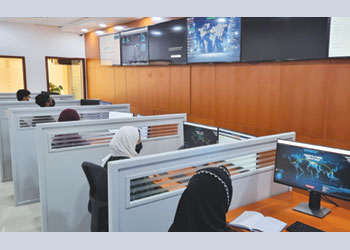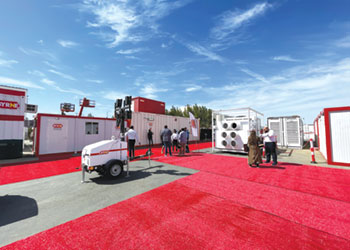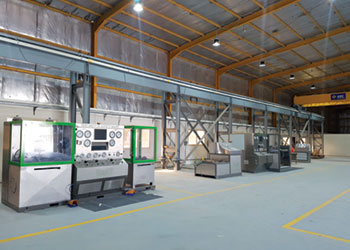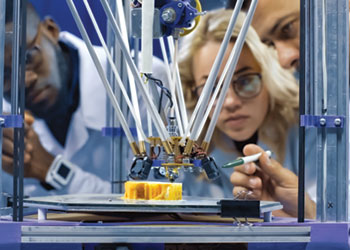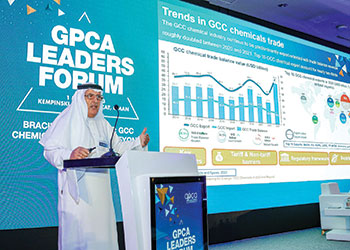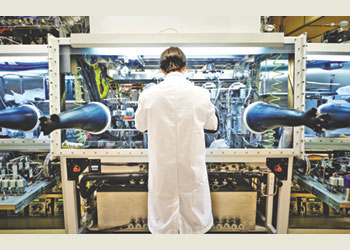
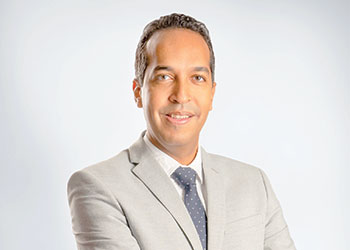 Yehia ... meeting demand for EV fluids
Yehia ... meeting demand for EV fluids
The market for electric vehicles (EVs) has grown rapidly in recent years and is expected to continue to grow at a fast pace over the coming decade.
Components in EVs, including batteries, management systems, motors, etc are easily observable, but a largely unnoticeable segment is fluids. Seemingly contradictory to the objective of EVs, which aim to replace fossil fuel-powered engines, these fluids are crucial for cooling the powertrain and transmission system while stabilising the temperature of the battery and power electronics.
The EV fluid market is anticipated to grow at a CAGR of more than 25 per cent in value terms in the next five years. Countries like Brazil, Russia, India, and China are expected to be lucrative markets for lubricants during the forecast period.
The EV fluids have been engineered and modified specifically to meet the requirements of the high-tech powertrains.
In an exclusive interview with OGN energy magazine, Haytham Yehia, General Manager Middle East & Central Asia, Shell, unravels the future of base oils in light of EVs and discusses changes happening in the next five years that will influence the lubricants market, and the opportunities EVs can bring to the Middle East’s base oils and lubricants industry.
 |
The Lucid EV on display at the iktva 2023 forum outside the Dhahran Expo Centre |
With the move to EVs steadily gaining speed, there’s no doubt that e-mobility is here to stay. Questions about the dependability, speed, and distance range of hybrids and EVs have been answered to the satisfaction of a significant, and growing, number of consumers, to the point where demand is steadily shifting in their favour over internal combustion engine (ICE) vehicles. By 2031, production of EVs is expected to reach 50 per cent of all vehicles made.
However, for original equipment manufacturers (OEMs), e-mobility represents some of the biggest engineering and design changes—and challenges—in the industry’s history.
Hybrid electric vehicles (HEVs), which continue to improve technologically, increasingly compete for attention with plug-in hybrid electric vehicles (PHEVs) and battery electric vehicles (BEVs).
But despite their differences, they all rely (to one degree or another) on electric powertrains, which are rapidly becoming more sophisticated and technologically demanding to meet consumers’ expectations. This includes the fluids in them.
When it comes to fluids, their core job of preventing wear, reducing friction, and being efficient is still essential, but as e-mobility technology advances, so is the role that fluids play in electrical compatibility and thermal management.
Simply put, the fluids developed for ICE vehicles generally fall short of the performance requirements of hybrids and EVs.
To most consumers, fluids in hybrids and EVs are all but invisible. But those in the automotive industry know how crucial they are, particularly because, once added to the sealed environments in these vehicles, they need to perform at optimum levels over the vehicle’s lifetime. The first fill couldn’t be more important.
At Shell, we’re working alongside OEMs to help manage these challenges.
As a leading global lubricants manufacturer, Shell has developed a line of fluids engineered specifically for the high-tech powertrains of hybrids and EVs that effectively and efficiently meet a broad range of performance requirements.
And these developments have significantly taken place not just from the research in our own laboratories, but also by working in close technical partnership with OEMs for more than 20 years and component manufacturers, who are developing their next generation of EVs.
We’ve done this by employing a number of dedicated screening methods, such as copper wire corrosion testing, high-speed foaming testing, and state-of-the-art technology for high-speed driveline test rigs.
We have partnered with leading OEMs to support with BEV as well as fuel cell electric (FCEV) powertrains for passenger car vehicles, as well as commercial and heavy-duty vehicles, ensuring that all types and sizes of electrified mobility can benefit from the extensive range of these specialized e-fluids and e-greases.
What changes do you expect in the next five years that will influence the lubricants market?
The EV fluid market is anticipated to grow at a CAGR of more than 25 per cent in value terms in the next five years. Countries like Brazil, Russia, India, and China are expected to be lucrative markets for lubricants during the forecast period.
To meet the demands of the huge population, governments in these countries are highly focused on industrial development. This will boost all the associated sectors, such as transportation, power generation, and mining, thereby driving the growth of base oil and lubricants.
Additionally, higher charging speeds will likely come at a cost of increased temperatures since electricity generates heat.
Shell understands that the need for thermal management will be vital, and we will continue our history of collaboration with auto industry partners in this area as well.
Looking at the future of e-mobility, Shell will work with OEMs on new cooling technologies for EV batteries. This need will be particularly important as fast charging technologies improve and are a big selling point from a consumer standpoint. The automotive industry is undergoing some of the biggest technological changes in its history, bringing e-mobility to a world that is both increasingly on the move and mindful of its environment. As hybrids and EVs continue to deliver a higher level of performance for consumers, we will continue our history of partnership with OEMs to engineer the most advanced, reliable e-fluids in the industry.
What opportunities can EV bring to the Middle East’s base oils and lubricants industry?
We see the Middle East adopting EVs at a higher rate than other markets, such as South America, but lower than others such as the US, Europe, and China.
Several bold plans have been implemented in the lead-up to COP 28 in Dubai this year. The UAE-based smart-mobility provider, Pulse, for example, announced it will install 100 fast electric vehicle charging stations across Abu Dhabi in the run-up to the UN Climate Change Conference.
To date, its chargers have powered more than 50,000 clean km, reducing 12 tons of carbon emissions.
With Shell’s global expertise in EV fluids, we look forward to supporting our customers in the region ensuring that all types and sizes of electrified mobility, now and in the future, can benefit from the extensive range of these specialised e-fluids and e-greases, ensuring the best lubrication options for the future of mobility.
By Abdulaziz Khattak







































































